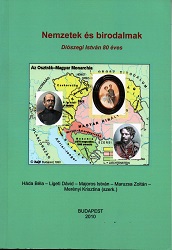
We kindly inform you that, as long as the subject affiliation of our 300.000+ articles is in progress, you might get unsufficient or no results on your third level or second level search. In this case, please broaden your search criteria.

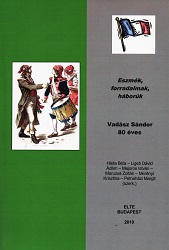

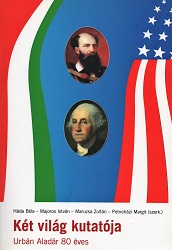

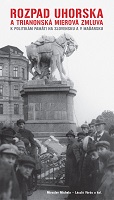
Jérome Bruner vo svojej eseji o kultúre vzdelávania upozornil, že: „cieľom výučby dejepisu je pomáhať žiakom vytvárať významy, nie riadiť učenie len na zapamätanie významov.“ Jadro jeho myšlienky nielen pamätať, ale aj vytvárať významy upriamuje našu pozornosť na isté znaky tradície. Práve tie, okrem iných, ovplyvňujú nielen charakter či špecifiká historického poznávania v edukačnom prostredí, ale i intenzívnejšie prebiehajúci slovensko-maďarský historicko-didaktický dialóg o tvorbe národných či spoločných učebníc dejepisu.
More...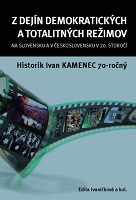
Vobdobí vzniku Československej republiky (ČSR) sa školstvo na Slovensku, ktoré tvorí základ každej národnej kultúry, nachádzalo v katastrofálnom stave, čo bolo dôsledkom dlhodobého pôsobenia uhorskej štátnej politiky voči nemaďarským národom Uhorska a vojnovej vyčerpanosti spoločnosti. Prechodom frontu na východe Slovenska a tiež rabovaním po skončení vojny boli mnohé školské budovy poškodené a ich mobiliár zničený. Vládne miesta mladého štátu si uvedomovali zložitosť situácie a problémom školstva a vzdelávania venovali zvýšenú pozornosť. Centrálnym orgánom riadenia školstva sa stalo Ministerstvo školstva a národnej osvety (MŠANO) so sídlom v Prahe. Školstvo spravoval v slovenskej dočasnej vláde od novembra 1918 Anton Štefánek, ktorý sa stal o niekoľko mesiacov neskôr referentom pre oblasť školstva Ministerstva s plnou mocou pre správu Slovenska spravovaného Vavrom Šrobárom. Od roku 1919 pod jeho vedením pracoval Referát MŠANO pre Slovensko so sídlom v Bratislave.
More...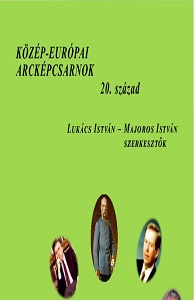
The purpose of this study is to examine the political career of Edvard Kocbek (1904–1981), the internationally recognised Slovene writer, poet, Christian Socialist thinker and politician. Kocbek became well known in 1937, after publishing a long article about the Spanish Civil War, in which he raised his voice against the fact that the main Slovenian party and the Church leadership supported Francisco Franco. In World War II he and his Christian Socialists cooperated with the communists in the Liberation Front and Kocbek has received high ranking positions after the war, but as a Christian, he had no place in the new regime and was forced to resigne. After a decade, he could publish his literary works again. In the afternoon of his life, he raised a particularly unpleasant question for the regime regarding the massacres committed by the Yugoslav Communists after World War II, which was a taboo subject till then.
More...
Arthur Schnitzler was one of the most prominent representants of the so-called „Jung Wien”, i.e. the group of Vienna intellectuals, writers and artists around 1900. His dramatical and narrative works demonstrate characteristic traits, social, intellectual and aesthetical problems, and figu-res of the late k.u.k.-Monarchy, and although he was often considered as an author contributing to the „Habsburg myth”, he had a very sceptical and critical view about his time and the Vienna society of the turn of the century. Schnitzler’s works account i.a. for the ’language crisis’, the crisis of personality in a very special manner, and in his novellas he introduces experimental narrative tools (e.g. multiperspectivism, interior monologue, unreliability) which makes him to a prominently modern author.
More...
Hantos’ ideas contained progressive elements and made a realistic of-fer to the states of Central Europe. Its timing was unfortunate, however, because the new nation states’ desire for separation made its realization more difficult. Also, Germany’s breakthrough, and its new network of bi-lateral economic relations made virtually impossible the alliance of the Central European countries. Other attempts at integration have emerged too which also weakened the process. Hantos’ recognition, and offer of freedom from old grudges was a viable alternative to the weary nations of Central Europe. Elemér Hantos was a precursor of the spirit seeking the possible ways of coexistence, and no longer just for Central Europe, but for the whole of Europe: to emphasize what unites us, not what separates us.
More...
Georgi Dimitrov (1882–1949) Bulgarian communist leader, head of state after 1945. His international recognition was acquired in 1933, follo-wing the German Reichstag–fire trial in Leipzig, where he was acquitted of Hitler's judges, accused by Herman Göring and Joseph Goebbels. He moved then to Moscow, where he became secretary general of the Communist International, wich controlled of the communist parties aro-und the world. He had a role in the elaboration of the popular front policy - successful in France and Spain. At the same time he had to suffer of Sta-lin's dictatorship, he had to experience the execution of. After 1945, with the Yugoslavian Joszip Broz Tito, many of his associates they saw the op-portunity in the Balkan Federation to loosening the dependence on Sta-lin. What Tito did, he did not succeed: the presence of Soviet troops in Bulgaria had decided the outcome.
More...
This paper focuses on a person being both a scientist and a politician who played a key role in socialist Hungary in the initiation of the opening towards the West. Ferenc Erdei (1910–1971) started his career as a soci-ologist in the early 1930s and was mainly involved in politics after 1945. Following the revolution in 1956, he drew back from his active political role. He established the Research Institute of Agricultural Economics of the Hungarian Academy of Sciences which became the the most import-ant background institution of the Agrarian Lobby. My paper argues that the experience Erdei gained from his study trips in Western Europe in the 1930s served later as a basis for the „bridge-building” between the socialist East and the capitalist West. In my paper I investigate which western countries Erdei launched the opening towards and through which channels he started to build a network as well as the political and professional debates that followed this process.
More...
Life, later destiny, political and public work of Dr. Ágost Benárd, minister of welfare and labor and Alfréd Drasche–Lázár, extraordinary ambassa-dor and authorized minister, who were the signatories of the Peace Trea-ty of Trianon, on 4th June 1920 were beyond the scope of examination of the researchers and historians in the recent time. Present study is aiming to fill this gap, with presenting the two signatories’ political and public ca-reer. It covers their education, role in the First World War and their work between the two wars. It definitely refutes the allegations that Dr. Ágos Benárd and Alfréd Drasche–Lázár were weightless politicians who were willing to leave politics and who were voluntarily signatories of the peace treaty. By contrast, the study describes both politicians’ work after the signing of the peace treaty, and proves with persuasive arguments that they were two honest gentlemen, who were suffering of and said to be victims of the events, they were the formers of the 20th Century Central Europe.
More...
Gömbös Gyula (1886‒1936) prime minister of Hungary (1932‒1936) started his political carreer after the defeat of Hungary in the First World War as a well-trained and talented officer. On the basis of his radical views influenced by different effects and because of his policy as head of government many people considered him that he took over mainly Mus-solini’s and partly Hitler’s views and political practice and his thinking and discussing politics were characterized by these facts. This study analyses the strong similarities and the important differences among the ment-ioned three politicians in the area of the ideology and the exercise of po-wer. The differences in the internal conditions of the three countries and among the characters of the three politicians explain the said similitudes and the differences. According to the author it can be prouved that Gömbös tried to creat a system (diktatorship) that (1) is similar to the fas-cism and the national socialism; (2) it’s not a copy (except the unsuccesful trial of the acceptance of the Italian coorporate system), but it’s about be-ing in similar societies the politicians give similar answers to the challenges.
More...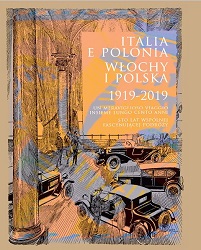
Bilingual volume published in cooperation with the Embassy of Italy in Poland and with the Italian Institute of Culture to celebrate the centenary of the Italian-Polish diplomatic relations (1919–2019).Texts by the renowned Italian and Polish authors (translated from Italian to Polish or vice versa) are divided into two parts: “Diplomacy, economy, history” and “Art, film, literature, theatre”. Such division allows to follow the Polish-Italian bonds in different fields, from translation and performance of the Italian tragedies on the Polish stages, to cooperation with the FIAT company. There is also reflection on the Polish-Italian relations in the difficult interwar period and during the Second World War. In this context one text has exceptional significance - that of Vincenzo Mario Palmieri, Italian anatomic pathologist and a member of the international commission that examined the Katyń massacre in 1943.The volume not only for the Italophiles but also for all those interested in the history of the 20th century and in the issues of the international relations.
More...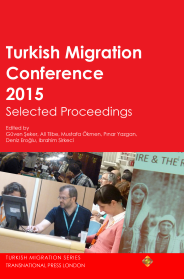
1968 yılı, bu bildiri için iki farklı önemli noktaya işaret eder. İlki Mercedes – Benz lisansıyla Türkiye’de ilk defa fabrikasyon olarak şehirlerarası ve şehiriçi otobüs imalatının başladığını gösteren bir kuruluşun faaliyete geçmesidir. İkincisi ise Yaşar Kemal’in eserinden uyarlanan 1968 yılı yapımı Urfa – İstanbul filmidir. Bu filmde günün şartlarında ve günün ulaşım araçlarıyla yaşanan bir kaçmakovalama öyküsü perdeye aktarılmıştır. Konumuz itibarı ile bizi filmde kullanılan ulaşım araçları ilgilendirir.
More...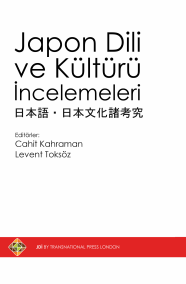
1853 yılında Amiral Perry’nin savaş gemileriyle Japonya’ya gelişi ile birlikte, Japonya’da büyük bir değişim yaşanmış ve 1868 yılında İmparator Meiji, gücü eline almıştır. Bu dönem ile birlikte, Meiji Restorasyonu başlamış ve Japonya, Batılı devletler ile iletişime geçerek onların kültür, bilgi birikimi ve teknik bilgilerini Japonya’ya getirmiş ve bu düşünce akımları içerisinde Emperyalizm kavramını da öğrenmiştir. Bunun ilk uygulamasını da Kore’ye limanlarını açması için baskı yaparak gerçekleşmiştir. Daha sonra ise, 1894- 1895 Çin-Japon Savaşı sonucunda, Tayvan Adasını, 1910 yılında Kore’yi topraklarına katmıştır. 1920 yılında Milletler Cemiyetinin kararıyla burada Güney Pasifik Mandası’nı kurması sürecinden İkinci Dünya Savaşında Çin, Çinhindi ve Pasifik Adalarını da içeren geniş bir coğrafyayı işgal etmesi ile birlikte tarihindeki en geniş toprak sınırına ulaşmıştır. Japonya, İkinci Dünya Savaşı sırasında topraklarına kattığı yerlerde yerli halklara yönelik sistematik bir biçimde Japon dili eğitimi uygulamıştır. Filipinler de Japon dili eğitimi uygulanmış yerlerden birisidir.
More...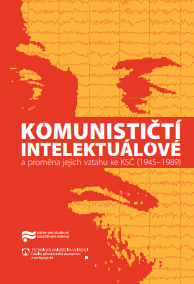
The study uses methodology “cultural memory studies” to feature the National Theater as a place of memory. It focuses on the building as a symbol and attempts to describe the way, in which the symbolic architecture represents the past and enters the memory praxis of the nation (decoration of the theater, canonical repertoire, festivities, collections and so-called theater trains as actions of national participation). The author adds a dynamic extent of remembrance to a traditional approach – place of memory as a depository of representations of history. He contemplates the National Theater as an “empty place” – a framework of a specific social and cultural context to deliver substance of the past. The study analyses the process of the National Theater constitution as a place of memory – especially in the connection with the 1881 fire. This “national tragedy” symbolized one of the most powerful experiences of the modern Czech nation, that as a strong shared affection reflected itself in the process of constitution of the national identity. In this instance the study utilizes theme of trauma used by Aleida Assmann in the frame of the memory studies. The study uses a few cases to demonstrate memory praxis closely linked to a symbolic space of the National Theater (production of the Čapek’s theater play the White Disease (Bílá nemoc) in 1937, role of the theater during political changes in 1989).
More...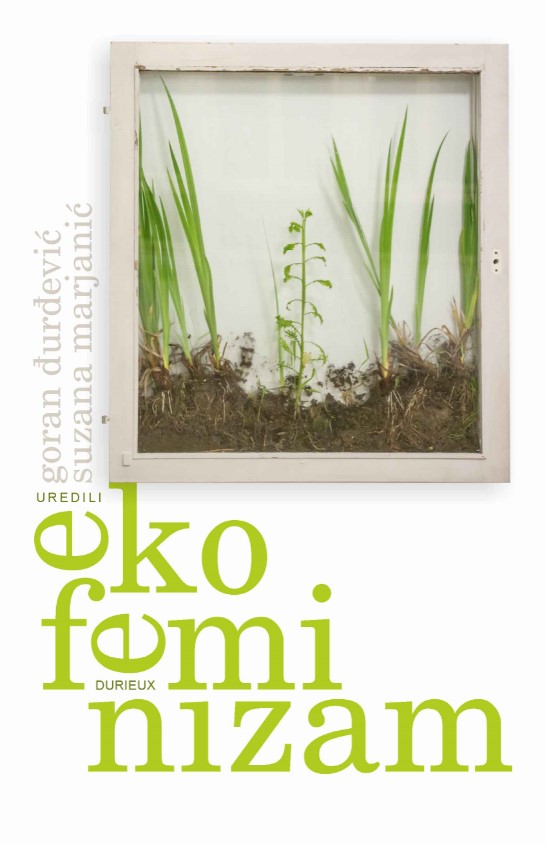
The first philosopher Hypathia and her tragic death are less well known, and the Minoan Age of Crete Island management represents an egalitarian society in which women are equal to men. The eco– feminist movement was founded during radical and turbulent social changes in the early eighties. Due to the effects of wars, global environmental movements and minority rights movements have joined forces to create a significant subversion of patriarchal–based theory. The author and environmental pragmatist, leading sociologist Jane Adams, winner of the Nobel Prize, who received her doctoral degree at Yale University and organized the Hull House project to investigate the behavior of immigrants, influenced the eco feminist pragmatism of Charlotte P. Gilman and Caroline Bartlett Crane. This position is later found in the works of well–known neo eco feminists and sociologists. It is necessary to implement deconstruction and demystification of patriarchal approaches to society and education, in order to form a contemporary sociological theory, involving women as authors and their achievements.
More...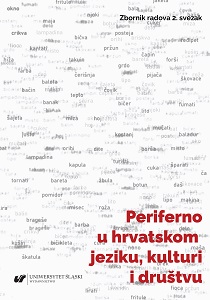
A proverb is a concise, structurally complete saying formed as a reflection of a life experience or a speaker’s wisdom within a certain socio-cultural space. Based on tradition, in other words, on extralinguistic, real and concrete experience of a speaker, proverbs, through their constant use, become a constituent of collective experience and assume general meanings. Therefore, they serve an important didactic and moral-educational function in the language of the community. The paper explores the representation of proverbs (wise sayings) in the journal of the Croatian Association for the Protection of Animals „Živobran“ (1894–1904). The analyzed corpus consists of proverbs whose subject is most frequently an animal, or a human and their relationship towards animal world. The analysis of zoonymic paremiology will raise moral-ethical issues, such as speciesism and empathy, in the context of cultural zoology and biethics. Zoonymic paremiology on the pages of „Živobran,“ the journal of the Croatian Association for the Protection of Animals reveals historical-cultural cognitions on animal world of Croats at the turn of the 19th and 20th centuries.
More...